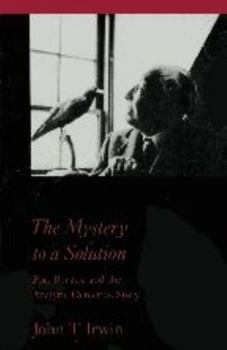The Mystery to a Solution: Poe, Borges, and the Analytic Detective Story
Select Format
Select Condition 
Book Overview
Winner of the Aldo and Jeanne Scaglione Prize for Comparative Literary Studies from the Modern Language AssociationWinner of the Christian Gauss Award from the Phi Beta Kappa Society
In The Mystery to a Solution, John Irwin brilliantly examines the deeper significance of the analytical detective genre which Poe created and the meaning of Borges' efforts to double the genre's origins one hundred years later. Combining history, literary history, and practical and speculative criticism, Irwin pursues the issues underlying the detective story into areas as various as the history of mathematics, classical mythology, the double-mirror structure of self-consciousness, the anthropology of Evans and Frazer, the structure of chess, the mind-body problem, the etymology of the word labyrinth, and dozens of other topics. Irwin mirrors the aesthetic impact of the genre by creating in his study the dynamics of a detective story--the uncovering of mysteries, the accumulation of evidence, the tracing of clues, and the final solution that ties it all together.





